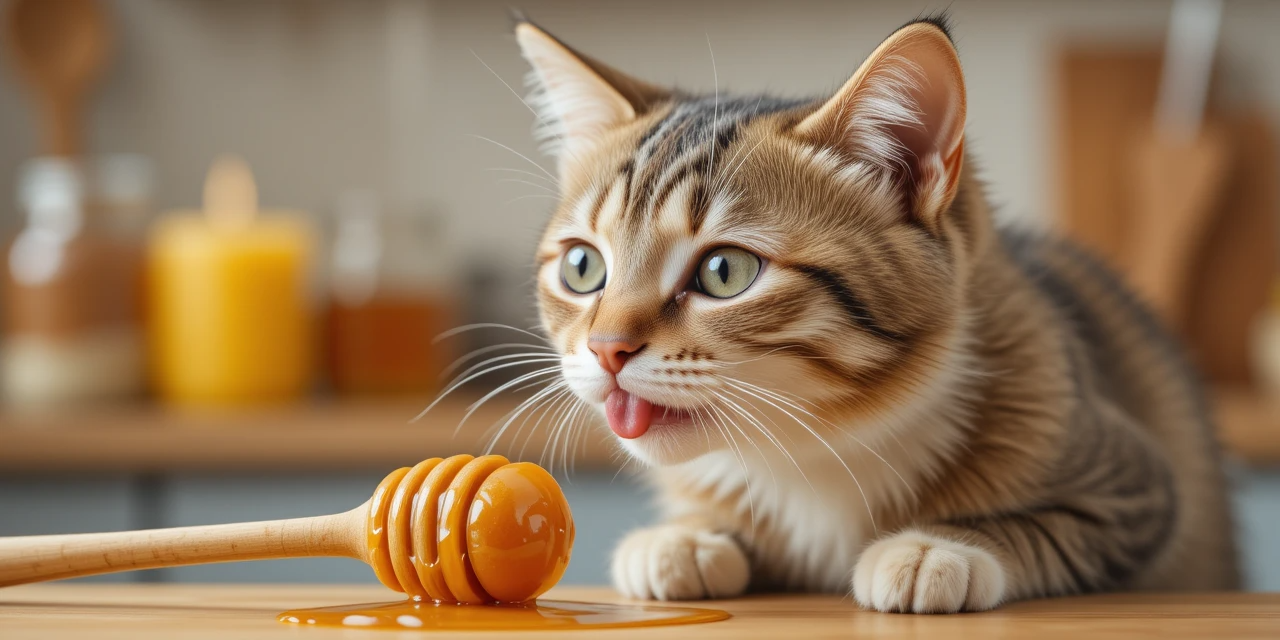Can Cats Have Honey? What Every Cat Owner Should Know
Cats are curious creatures, and many pet owners wonder if sharing some of their favorite human foods—like honey—is safe. Honey is natural, sweet, and often touted for its health benefits in humans, but cats have very different dietary needs. This introduction sets the tone by addressing the common question and reassuring readers that they’ll get clear, science-backed answers. You want to capture their curiosity and establish trust right away.
Understanding Cats and Their Diet
Cats are obligate carnivores, which means their bodies rely on nutrients found only in animal tissues. Unlike omnivores (like humans and dogs), cats’ digestive systems aren’t designed to process sugars or carbohydrates effectively. Furthermore, research shows cats lack the gene for sweet taste receptors, so they don’t perceive sweetness at all. This explains why a sugary food like honey won’t appeal to them the way it does to us. Understanding this fundamental fact helps readers grasp why honey isn’t a natural or necessary part of a cat’s diet.
Nutritional Profile of Honey
Honey is primarily composed of simple sugars — fructose and glucose — making it a high-calorie, sugary substance. While honey does contain trace amounts of vitamins, minerals, and antioxidants beneficial to humans, these do not translate to feline nutritional needs. Cats need protein and fats as their main energy sources, and sugars provide little to no benefit. The high sugar content can contribute to excess calories, which, for a typically low-carb animal like a cat, can lead to unwanted weight gain or other health problems. This paragraph helps readers understand the biochemical composition and why it’s ill-suited for cats.
Potential Risks of Feeding Honey to Cats
Even though honey isn’t outright toxic to cats, feeding it can cause a number of problems:
- Digestive Upset: Cats’ digestive systems aren’t built to handle sugars, so honey may cause stomach issues like vomiting or diarrhea, especially if given in large amounts.
- Obesity and Diabetes: Frequent sugar intake can predispose cats to obesity and increase the risk of diabetes mellitus, a serious disease common in older or overweight cats.
- Allergic Reactions: Because honey can contain pollen and other particles, some cats might develop allergic reactions, including skin irritation or respiratory symptoms.
- Dental Concerns: Sugars contribute to plaque buildup and tooth decay, potentially causing pain and infection in cats’ mouths.
This section educates readers on the risks and discourages casual feeding of honey.
Safe Alternatives to Honey
Instead of honey, cat owners should consider treats that align better with a cat’s natural diet:
- Suitable Treats: Commercial treats that are high in protein and low in carbohydrates are best, as they mimic natural feline nutrition.
- Homemade Options: Simple, safe homemade treats like cooked chicken, small bits of fish, or pureed pumpkin (which is good for digestion) are excellent alternatives.
- Commercial Products: You can mention well-known brands vetted by veterinarians that provide healthy treat options, reassuring readers they have good choices without compromising their cat’s health.
This paragraph adds value by offering practical, actionable advice to readers looking for treat ideas.
What to Do If Your Cat Consumes Honey
Sometimes accidents happen, and a curious cat might get into honey. This section should give clear steps:
- Monitor: Encourage owners to watch for any signs of illness, such as vomiting, diarrhea, lethargy, or unusual behavior.
- Contact a Vet: If symptoms develop, prompt veterinary advice is essential.
- Preventive Tips: Emphasize the importance of keeping honey and other human foods out of reach to avoid repeated exposures.
This part reassures the reader that a single small exposure isn’t usually a crisis but emphasizes caution and care.
Conclusion
The conclusion wraps up the article by reiterating the main points: honey is not poisonous to cats, but it’s not advisable to feed it to them due to the health risks discussed. It’s a reminder for pet owners to prioritize foods designed for cats and consult their vet before introducing anything new. This reinforces the educational value and encourages responsible pet care.
FAQs
Providing clear answers to common questions helps with SEO and reader satisfaction:
- Small Amounts: Explain that while a lick or two of honey is unlikely to cause serious harm, it should never be a regular treat.
- Health Benefits: Clarify that honey’s benefits for humans do not apply to cats, given their different physiology.
- Safe Human Foods: Offer a brief list of safe foods to share, such as lean meats or certain vegetables, promoting safer treat options.


